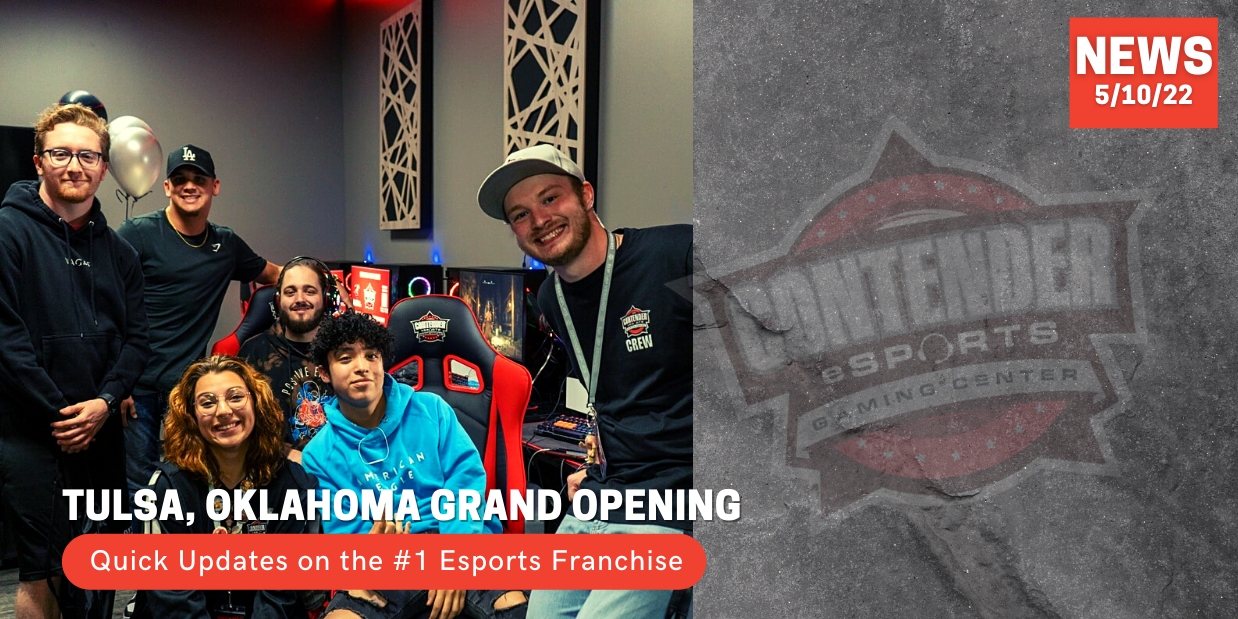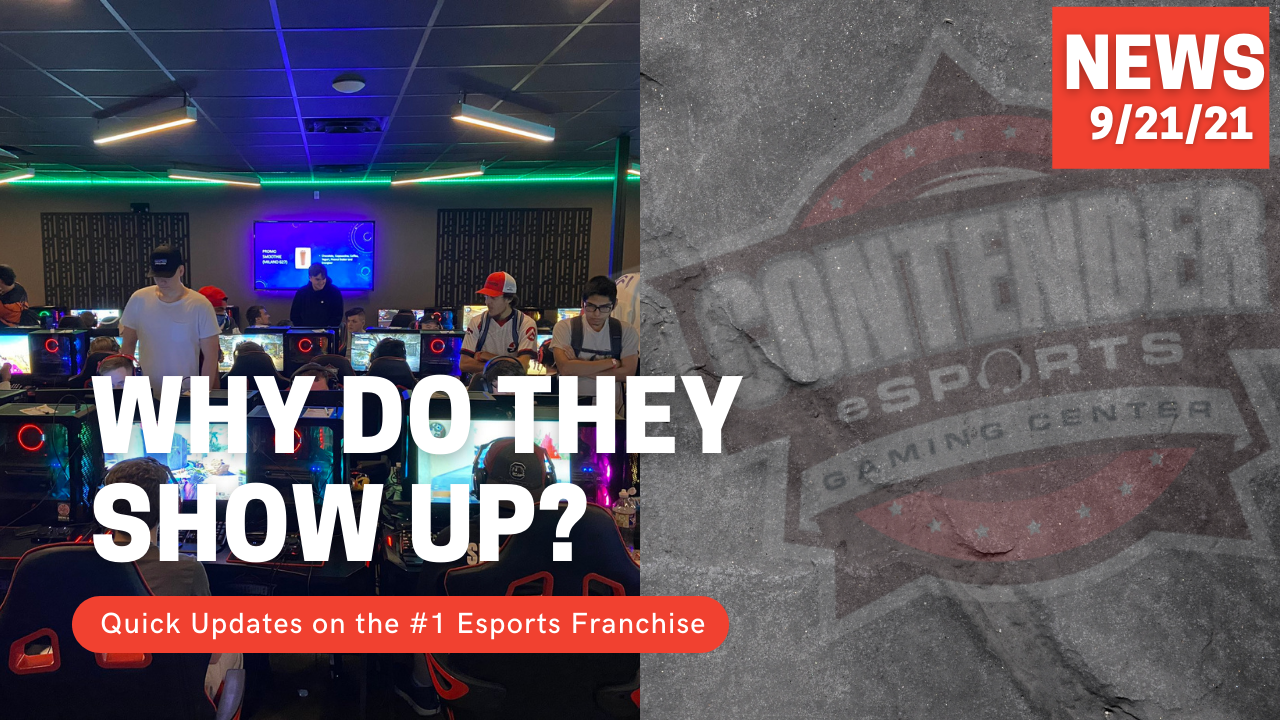What Is eSports?
Not quite sure what eSports is? Whether it’s a medium for entertainment, a hobby in one’s freetime, or a potential source of revenue from bets, it’s clear that eSports is something everyone should be on the lookout for, especially as its popularity increases. As you can see below, eSports tournaments are able to not only match, but outshine other traditional sporting events. eSports professional gamers can make millions per year. The old adage that video games will ruin your life is officially dead. Don’t believe us? Read this article – Highest Paid eSports Players in the World and you’ll start to understand.
One poll, taken last year by Washington Post-University of Massachusetts Lowell found that 58 percent of 14-to- 21-year-olds said they watched people playing competitive video games, with a similar percentage reporting that they played such games themselves.

Okay, But What Is It?
Before understanding the radical growth of eSports, let’s first establish the basics. eSports is a video game sport that encompasses a wide range and variety of video games, fans, and viewers. It is played worldwide, typically by professional gamers and in tournaments that have boasted record viewerships of over 100 million fans, like the 2017 World Championship for League of Legends, according to analyst website eSports Charts.
And eSports is played on many more games than League of Legends (frequently referred to as LoL). Although LoL is one of the most popular PC video games for eSports both in the United States and internationally, you may also recognize more pop culturally significant titles like Fortnite, Super Smash Bros, or Call of Duty.
How Does The Sport Work?
Types of Games
Generally, the types of games played by professional players or teams can be strategy games, which include multiplayer online battle arena (MOBA) games, like LoL, and real-time strategy (RTS) games. Other extremely popular genres include first-person shooter (FPS) games, or fighting games. Although not considered strategy games, these types of games still involve equal amounts of skill, teamwork, and quick reflexes.
Real-time strategy games are called so because they break from the format of traditional turn-based games. Players must control units to react to events as the game progresses, and these games often have resources and building mechanics to further challenge players. Popular examples of RTS games in eSports include StarCraft II or Warcraft III.
MOBA is by far, the most popular genre in terms of viewership and prize money. MOBA games, which originally spawned as a sub-genre of RTS games, are team strategy games where teams work together against an opposing team to take out their base while defending their own. In 2018, the top prize money for the LoL World Championship was nearly $6.5 million dollars. Another popular MOBA game, Dota 2, had a total prize pool of over $25 million dollars in the 2018 championship and over 52 million total viewers.
One of the most universally recognized eSports genres, first-person shooter games include classic franchises like Call of Duty, Rainbow Six, and Counter-Strike, as well as the more recently popular battle royale genre with titles like Fortnite and PlayerUnknown: Battlegrounds. These games center around weapon-based combat through the eyes of the main character, and usually involve teams competing against each other.
Lastly, fighting games, which include Mortal Kombat and Nintendo’s Super Smash Bros, are games which usually focus on individual players’ skills and tactics in round-based matches.
How The Games Are Played
Watching an eSports tournament, you’ll see the same type of setup we’ve all become familiar with after watching traditional sports. Commentators provide information on the teams, players, and the leagues and tournaments, while a live audience usually watches as the games unfold. Like traditional sporting games, the matches and tournaments are broadcast live to the hundreds or millions of fans that watch live through live streaming platforms like YouTube, Twitch, and Facebook.
One of the only things slowing the growth of eSports (which, by the way, is still growing at an insane rate- the audience has expanded by just over 50% since 2016 to now include 557 million total casual viewers and enthusiasts) is the lack of a national or international professional league, like with the NFL or the Olympics.
Due to this lack of an official professional league for eSports, a unique structured system has established itself in the industry. Players organize themselves by specific games, and the games are run and regulated by tournaments or leagues that host the large tournaments and set up the seasons for the sport.
Similar to how American football was organized before the creation of the NFL, teams are organized into a variety of different regions and leagues based on geographic locations. Many leagues focus on specific countries or continents.
The key thing to note is that teams and players are almost always separated by specific games, so they are whittled down throughout seasons through series matches that put teams and players against each other for multiple games in a row. Often, in FPS games, specific teams are extremely skilled or prepared for certain maps over others, so multiple rounds are needed before elimination.
Live Gameplay
With the use of live streaming platforms, like the incredibly popular Twitch streaming site, professional gamers or leagues are able to reach endless amounts of fans in real time. For individual players, this means one on one and more personal interactions with fans. And for large tournament streams, this means real-time engagement with millions of fans and a greater impact on ads that millions of viewers will watch through as they attempt to see every moment of the matches.

According to Twitch analytic site TwitchTracker, the nearly 600,000 average viewers on the streaming site in 2016 is expected to have grown to 1.28 million by the end of this year. Looking at the graph below, the dramatic growth of live streaming services is shown to be clear.
Where Does The Money Come From?

As you can see above, there’s a lot of focus on and attention to viewership and revenue in the eSports system. Large game developers, major brand names, and investors with millions of dollars placed on the future of the market are all involved in the hundreds of millions of dollars that eSports generate.
It’s no surprise then that the growing industry of eSports is capable of large amounts of revenue. According to one analysis by Newzoo, an industry analyst, eSports has seen a more than 30% average annual revenue increase, with most of this generated from brand contributions. And, according to that same analysis, eSports is predicted to generate well over $345 million dollars in revenue in North America and over half a billion dollars overseas.
Clearly industry has seen a large increase in revenue in recent years as more and more people are realizing the potential profit involved with the rapidly growing industry. Newzoo also predicted that by 2021, eSports will be generating over $1.6 billion in total revenue, with $1.3 billion coming from these brand investments.
eSports Betting
In 2018, the well respected gambling industry research firm Eilers & Krejcik Gaming predicted that by 2020, the global eSports betting market would be generating $13 billion dollars. And this report came before the legalization of sports betting in the United States in 2019. Across Europe and Asia, eSports betting markets have been active and regulated for some time now.

A 2019 article by Inside World football found that “at least 40% of spectators have not played in the video games they watch,” and that “the demographic is 62% male and 38% female, with more than half aged between 21 and 35 years old.” These statistics reveal the reality that Esports is becoming a spectator sport, with potential revenue to be made from the large amounts of people that enjoy watching the sport for entertainment.
The previously referenced article also revealed that, in 2016, over $5.5 billion was wagered on major eSports titles. There are already connections being made in the United States with established gambling organizations. For example, in 2018 gaming provider Paddy Power Betfair acquired the daily fantasy site FanDuel, with FanDuel CEO telling reporters, “eSports is definitely an area of focus for us. If you look at Vegas, there are lots of people who bet on eSports. To use a Wayne Gretzky analogy, ‘That’s where the puck is going.’”
by Brendan Dewley
PUBLISHED May 26, 2019
View Original Article
For more information about Contender eSports, check out our FAQs.
















